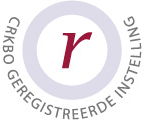Interview Eveline van Erp
Facilitate peer-to-peer learning and inspiration!
HRM policy advisor Eveline van Erp (VU university) is a speaker at the conference Let Scientists Shine!, 6 November 2015. She will share her experiences with – and views on – shaping effective university policy, especially on the subject of valorisation. “Professors like to share experiences with other professors, and HRM can facilitate this with special programmes and education. Supporting them is more effective than telling them what to do”.

“VU university uses the term valorisation in a broad sense, including knowledge transfer and science communication and societal impact, not just making money. From that perspective, we have made an inventory of the current wishes among key scientists, policy makers and governors within our university. We were looking for caveats in our talent development program, and found that our course Academic Leadership could use an update with special reference to funding and valorisation activities and grant acquisition. I found it necessary to not let academic leaders swim, but support them effectuate their valorisation efforts.
We did this by setting up an addition to our course Academic Leadership, in which successful professors share their experiences. It is helpful to let them learn from each other and showcase best practices.
In general, I think scientists primarily need space and time to focus on their passion, which is research. Valorisation can even become a passion of scientists, once they inspire each other. That is necessary because success in valorisation can only be achieved by great determination and passion and also some guts. Currently, professors are much pressured to find ongoing funding for their department. Universities could investigate more how to support this, maybe in the form of facilities, (wo)manpower, or a sabbatical. I support the idea that we should think about alleviating time pressure on scientists and thereby securing their wellbeing. HRM could play a role in this, for instance by looking in to diminishing bureaucracy and by setting up special training programmes like we did at the VU.
The support of scientists must be a joint effort among all parties involved, such as Grants Desks, TTOs and science communication departments, within and among universities.
On my LinkedIN page you can find some of the reports we have published about our talent development programs and policy.
I’m looking forward to sharing my experience and ideas with HRM and scientists of other scientific institutions”.

